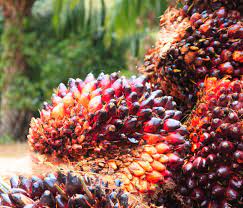Expert underlines poor access to credit, technology for Nigeria’s low oil palm output

An avid reader, analytical writer and consistent content creator with several enlightening articles and reports. He is currently a journalist , Commodities, Agriculture and Technology at business a.m. newspaper. Email: amugedavido@gmail.com. Tel: +234 706 930 4947
July 28, 2021959 views0 comments
Lack of access to credit facilities and improved technologies is responsible for Nigeria’s poor two percent contribution to the global oil palm industry. Oil palm production in Nigeria is 70 percent controlled by smallholder farmers who face challenges accessing credit and are, therefore, unable to make significant outputs.
 Samson Remison, professor of agriculture, Department of Crop Science, Ambrose Alli University, (AAU), Edo State, made the disclosure during the 2021 seed meeting, In-house Research Review and Annual South-South REFILLS workshop organised by the Nigerian Institute for Oil Palm Research (NIFOR) in Benin.
Samson Remison, professor of agriculture, Department of Crop Science, Ambrose Alli University, (AAU), Edo State, made the disclosure during the 2021 seed meeting, In-house Research Review and Annual South-South REFILLS workshop organised by the Nigerian Institute for Oil Palm Research (NIFOR) in Benin.
Remison, who bemoaned the inability of the smallholder farmers in the oil palm sector to access the Central Bank of Nigeria (CBN) agricultural finance interventions, also noted that the programmes were mostly discriminatory and focused on the big plantation owners with impressive cash flow and better ability to pay back loans.
According to him, the Anchor Borrowers’ Programme of the federal government was launched to provide seeds and cash to farmers to grow crops but the participating banks working with CBN lends to anchors at nine percent per annum for onward disbursement to farmers making it difficult for smallholder farmers to access the interventions.
“CBN must understand the peculiarities in oil palm production, as it takes three to five years for it to mature. So CBN cannot afford to ask for loan repayment in three months as applicable to arable crops,” he said.
Remison stressed that there was a need to create a special financing scheme for the oil palm to enable smallholder farmers to have access to funds and improved technologies. He added that conscious efforts should be made to increase the production level of these smallholders, as well as provide a conducive environment for investment by large scale investors.
Joe Onyiuke, national president, Oil Palm Growers Association of Nigeria (OPGAN), said the association was working assiduously towards ensuring that farmers were bankable and eligible to access support from the CBN.
Onyiuke further noted that the association has secured off-takers and created a market for oil palm farmers and also ensured input supplies and extension services are guaranteed to the farmers.
“We have also signed up with an insurance company to insure members farms across the country in order to mitigate the losses that occur as a result of incessant bush burning,” he added.
The OPGAN president called on the Nigerian Institute for Oil Palm Research (NIFOR) to expand and include smallholder farmers in training in the areas of mechanisation, harvest, milling and storage systems to promote sustainable development as smallholder farmers are responsible for a good percentage of the national palm oil production.
